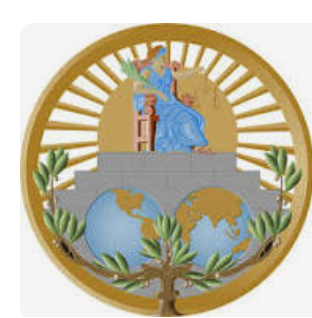رأي محكمة العدل الدولية: لائحة اتهام خطيرة ضد القضاء الإسرائيلي
بقلم: يوفال يوعاز
إن الرأي الاستشاري، الذي أصدرته محكمة العدل الدولية في لاهاي، بشأن شرعية الاحتلال والمستوطنات، والذي صدر يوم الجمعة الماضي، يشكل، من بين أمور أخرى، إدانة قاسية لنظام القضاء الإسرائيلي.
نظام إنفاذ القانون والمشورة القانونية للسلطة التنفيذية منذ العام 1967 والمحكمة العليا كل هؤلاء فشلوا في وضع مرآة حقيقية وصريحة أمام حكومات إسرائيل بشأن مدى خطورة انتهاك قواعد القانون الدولي، وهو انتهاك ازداد قوة مع استمرار الاحتلال وتعمقه.
إن الهيجان المتزايد للميليشيات المسلحة اليهودية في الضفة الغربية – من المستحيل تجنب تسميتها بخلايا إرهابية – ضد السكان الفلسطينيين لا تحظى بأي رد من الشرطة والنيابة العامة والمحاكم الإسرائيلية.
عندما يتعلق الأمر بالإرهاب الذي يمارسه اليهود ضد الفلسطينيين، فإن عدم كفاءة جهاز إنفاذ القانون يتجلى بكل بؤسه. تشير محكمة العدل الدولية في الواقع إلى أن هذا ليس مجرد خلل بل خاصية. إن تجنب تطبيق القانون هو أمر متعمد.
إن “الرد الصهيوني المناسب” من جانب إسرائيل على مختلف الحوادث الأمنية، والذي يتمثل في إنشاء بؤرة استيطانية غير قانونية أو منح تراخيص بناء لعدة مئات أو آلاف الوحدات السكنية الإضافية في تلال معينة، والتي تعتبر “توسيعات” للمستوطنات القائمة، هو عمل مشكوك في شرعيته حتى على مستوى القانون الإسرائيلي الداخلي، وبالتأكيد على مستوى القانون الدولي، كما فصّل قضاة محكمة العدل الدولية بإسهاب.
وفوق كل شيء فإن محكمة العدل العليا، التي ساعدت الحكومات الإسرائيلية على مدى أجيال، بالتعاون مع وزارة العدل، في وضع نسخة إسرائيلية للقانون الدولي، حتى فُقد الاتصال البصري بين القانون، كما يُنظر إليه في العالم، وبين الادعاءات الإسرائيلية بشأن انطباق قوانين الاحتلال وقانون حقوق الإنسان.
لجزء من الوقت، كانت المحكمة بمثابة ما يشبه البالغ المسؤول، إلى أن أزالت هذا الدور عنها إلى حد كبير في السنوات الأخيرة.
إن رأي محكمة العدل الدولية الاستشاري، الذي يغطي نحو 80 صفحة، يحدد في أغلبية كبيرة للقضاة قرارات قضائية مفهومة ضمنا إلى حد كبير.
نعم، إن الاحتلال الإسرائيلي لـ”المناطق” مخالف لأحكام القانون الدولي، إذ لا يمكن اعتبار حيازة الأراضي لمدة 57 عاما مؤقتة، خاصة في ظل سلسلة الخطوات التي اتخذتها وتتخذها إسرائيل لجعل الوضع مستداما. نعم، القانون الدولي يلزم إسرائيل بالانسحاب من “المناطق” في أسرع وقت ممكن، كما أن ضم القدس الشرقية بعد فترة وجيزة من حرب “الأيام الستة”، وإرساء الضم في قانون أساس، لا يغير وضع الشطر الشرقي من المدينة كأرض محتلة من حيث القانون الدولي.
لم تشارك إسرائيل في المناقشات التي أجرتها المحكمة حول المسائل التي أحالتها إليها الجمعية العامة للأمم المتحدة بغرض تقديم رأي استشاري، واكتفت بتقديم وثيقة قصيرة من خمس صفحات، ركزت على التأكيد على افتقار المحكمة إلى سلطة إصدار رأي حول هذه القضية، والتحريف الناجم عن حقيقة أن قرار الجمعية العامة للأمم المتحدة نفسه يرتكز على افتراضات كاذبة وأحادية الجانب ويتجاهل “الإرهاب” الفلسطيني ضد الإسرائيليين.
بعد إصدار رأي المحكمة، أعلنت وزارة الخارجية أن إسرائيل ترفض ما ورد فيه، وادعت أن المحكمة تخلط بين السياسة والقانون.
من المفترض أن يصل رد قانوني مفصل على رأي المحكمة من وزارة العدل. من كانت أسرع من الوزارة هي بروفيسور تاليا آينهورن، المقربة من حكومة نتنياهو، التي سارعت إلى إصدار وثيقة وُصفت بأنها “رأي” تحلل رأي المحكمة.
وثيقة آينهورن هي مثال توضيحي للنسخة الإسرائيلية الفريدة من قواعد القانون الدولي، التي لا تتوافق مع أي نهج متبع في عالم القواعد والمواثيق.
ترى البروفيسور آينهورن أن محكمة العدل الدولية تجاهلت “الحق الطبيعي والتاريخي للشعب اليهودي في أرض إسرائيل”، وأن المحكمة تدعو عمليا إلى “التطهير العرقي لمئات آلاف اليهود من القدس وبقية أرض إسرائيل التاريخية”.
علاوة على ذلك، تزعم آينهورن أيضا أن لإسرائيل الحق في الاستيطان في الضفة الغربية وفي قطاع غزة أيضا، ويستند هذا، من بين أمور أخرى، إلى التقرير الذي صاغته لجنة القاضي أدموند ليفي في العام 2012، بعد تقاعده من المحكمة العليا – وثيقة أخرى تشكل مثالا لنقاط التطرف التفسيرية التي وصلت إليها إسرائيل.
قد يكون قضاة محكمة العدل الدولية تنفسوا الصعداء عندما أبلغهم البروفيسور أهارون باراك قبل شهرين بقراره التنحي عن منصبه كقاض خاص نيابة عن إسرائيل، في إطار الدعوى التي رفعتها جنوب أفريقيا ضد إسرائيل استنادا إلى اتفاقية منع جريمة الإبادة الجماعية. باراك، رئيس المحكمة العليا سابقا، هو شخصية تحظى باحترام ومكانة في الأوساط القانونية في العالم.
القضاة ذاتهم الذين جلسوا إلى جانبه في دعوى جنوب أفريقيا كتبوا في الوقت نفسه رأيا بشأن شرعية الاحتلال، حظيت فيها المحكمة العليا الإسرائيلية بإشارة هامشية، تكاد تكون مستخفة.
وفيما يتعلق بمصادرة الأراضي الفلسطينية الخاصة، تشير المحكمة إلى قرار المحكمة العليا الصادر في أسار 2022 بشأن إخلاء السكان الفلسطينيين من قرية مسافر يطا، وكذلك حكم المحكمة العليا الصادر في العام 1979 بشأن مشروعية هدم منازل منفذي الهجمات، بناء على أنظمة الدفاع الانتدابية من العام 1945.
لا تمنح محكمة العدل الدولية هذه الأحكام ولو تحليلا أو إشارة متعمقة، وتكتفي بالقول إنه على الرغم من أن القواعد التي صدرت على أساسها الأحكام مثيرة للجدل فإن ما لا خلاف عليه هو الطبيعة التمييزية للسياسة التي تتبناها إسرائيل، والتي تؤدي إلى تطبيق نظام قانوني منفصل على السكان الفلسطينيين. في العالم السياسي – الدبلوماسي، وليس فقط في العالم القانوني، هناك كلمة تصف ذلك.































